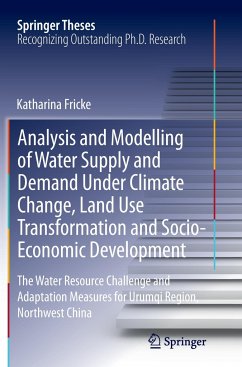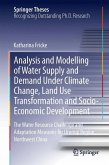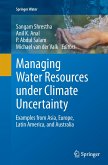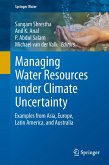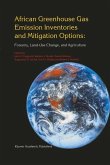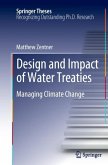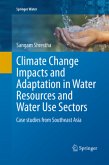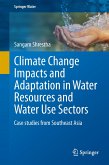Located in a narrow grassland corridor between the semi-desert and a mountain range in Northwest China, the research area Urumqi Region is despite its semi-arid climate in a relatively favourable hydrological situation. The nearby mountains provide water for settlements and agriculture, making human development possible in the first place. Due to the development of agriculture, population and economy during the last sixty years and the increasing water consumption, a demand- and population-driven water scarcity exists today and is expected to aggravate. At the same time, the effects of climate change and land use transformations on the hydrological system and the water availability are uncertain. This study evaluates the recent and future situation by combining a hydrological water balance model for the simulation of the water supply based on scenarios of climate and land use change with a socio-economic model for projecting the future water demand including predicted growth of population and economy.
Bitte wählen Sie Ihr Anliegen aus.
Rechnungen
Retourenschein anfordern
Bestellstatus
Storno

